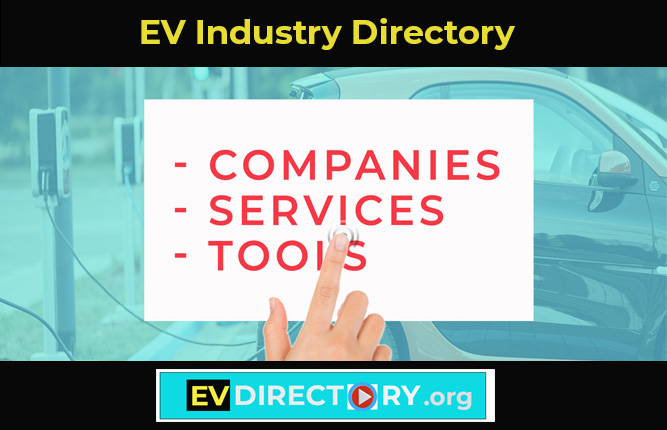Universities, colleges and technical schools that offer EV automotive courses which train the next generation of skilled technicians, engineers and electric vehicle industry professionals. The EV industry is rapidly expanding, creating a demand for skilled technicians, engineers, and professionals. Many lack the training needed to work with high-voltage systems, advanced diagnostics, and EV software. Colleges, universities, and technical schools now offer accredited programs covering EV powertrains, battery technology, autonomous systems, and charging infrastructure. These institutions provide hands-on training, high-voltage safety certification, and partnerships with automakers for career placement. Selecting the right school ensures access to industry-recognized credentials and cutting-edge EV advancements. Explore top programs to secure a future in the evolving electric vehicle industry.
Universities, Colleges and Schools that Offer EV Automotive Courses

Universities, Colleges and Schools with EV Programs and Courses List
Benjamin Franklin Cummings Institute of Technology – A private technical college in Boston, Massachusetts, dedicated to providing hands-on technical education.
Carnegie Mellon University – A private research university renowned for its programs in science, technology, and engineering.
Central New Mexico Community College – A community college committed to providing accessible, high-quality education and training.
Chattanooga State Community College – A public community college in Chattanooga, Tennessee, offering a range of technical and academic programs.
Colorado State University – A public research university recognized for its commitment to sustainability and environmental research.
Colorado State University – A public research university in Fort Collins, Colorado, recognized for its commitment to sustainability and environmental research.
Delft University of Technology (TU Delft) – A public technical university in Delft, Netherlands, known for its engineering and technology programs.
Duke University – A private research university with a strong emphasis on interdisciplinary studies and engineering innovation.
Kettering University – A private cooperative education and experiential learning-based university in Flint, Michigan, specializing in STEM and business fields.
Michigan Technological University – A public research university specializing in engineering and technology programs.
Osaka Institute of Technology – A private university in Japan specializing in engineering, robotics, and design.
Stanford University – A prestigious private research university known for its strong emphasis on innovation and entrepreneurship.
Technische Hochschule Ingolstadt (THI) – A German university of applied sciences offering a range of engineering programs with a focus on practical application.
Tennessee Technological University – A public university in Cookeville, Tennessee, offering a range of engineering programs with a focus on practical application.
Universal Technical Institute (UTI) – A private for-profit technical school with multiple campuses across the United States, specializing in automotive, diesel, and collision repair training.
University of Michigan – A leading public research university with a strong focus on engineering and technological innovation.
University of Michigan-Dearborn – A public university in Dearborn, Michigan, offering a range of undergraduate and graduate programs with a focus on practical experience.
University of Northwestern Ohio – A private university in Lima, Ohio, known for its focus on automotive and technical education.
University of Virginia – A public research university known for its strong engineering and applied science programs.
Wayne State University – A public research university in Detroit, Michigan, known for its strong engineering programs and industry partnerships.
Universities, Colleges and Schools with EV Programs and Courses Key Features and Capabilities
Accreditation & Certification
Programs that are accredited by recognized education or industry bodies demonstrate a commitment to maintaining high standards. Some programs also offer certifications from professional organizations or manufacturers, which can significantly boost a graduate’s employability. Accreditation ensures the program meets quality benchmarks, and certifications provide proof of specialized EV knowledge to future employers.
Access to Real EV Vehicles
Students gain practical experience by working directly with fully electric or hybrid vehicles during their studies. This exposure helps bridge the gap between theory and practice. Real-world familiarity with EV hardware is essential for building job-ready skills in diagnostics, repair, and maintenance.
Course Content & Relevance
The curriculum should include core EV topics such as electric drivetrains, battery management systems, power electronics, charging infrastructure, and diagnostic tools. Some programs may also include future-focused topics like autonomous systems or vehicle-to-grid technology. A comprehensive and current curriculum ensures that students are prepared for the rapidly evolving EV industry.
Course Formats
EV courses may be available in a variety of formats including in-person, online, and hybrid learning options. This flexibility allows students to balance studies with work or other responsibilities. A range of learning formats makes EV education accessible to a broader audience, including working professionals and remote learners.
Graduate Success & Job Placement Rate
Programs with high graduate employment rates reflect strong industry alignment and effective career preparation. Schools may also have active career services or job placement support. A solid track record of graduate success indicates the program’s effectiveness in preparing students for careers in the EV industry.
Green Tech & Sustainability
These programs often incorporate sustainability principles and clean energy technologies into the curriculum. Topics may include environmental impact, life cycle analysis, and renewable energy integration. As the EV industry is rooted in environmental responsibility, understanding green technologies is critical for future professionals.
Hands-On Training Labs
Well-equipped labs provide students with the tools and environment to practice diagnostics, repair, battery testing, and high-voltage safety procedures. Labs simulate real-world scenarios students will face on the job. Hands-on learning is key to developing confidence and technical skills in a safe, controlled setting.
Industry Involvement
Faculty and departments that work closely with industry through consulting, applied research, or joint projects stay up to date with real-world trends. This engagement also brings current insights directly into the classroom. When instructors are involved in the industry, students benefit from relevant and cutting-edge instruction.
Industry Partnerships
Colleges and universities that partner with EV automakers, parts suppliers, or clean tech companies can offer students unique advantages such as internships, mentorship, and employment pipelines. These relationships often lead to shared equipment, guest lectures, or collaborative projects. Partnerships with industry leaders strengthen the program’s practical value and career prospects.
Instructor Experience
Courses led by instructors who have worked in the EV or automotive tech field bring real-world insights to the classroom. Some may have experience in R&D, diagnostics, manufacturing, or engineering. Experienced instructors help bridge the gap between academic learning and industry expectations.
Interdisciplinary Learning
EV systems draw from several disciplines including mechanical engineering, electrical engineering, computer science, and environmental science. Programs that blend these areas offer a more complete understanding of vehicle systems. Interdisciplinary knowledge prepares students to adapt to the diverse and integrated nature of modern EV technology.
Internships & Co-Ops
These structured work experiences allow students to apply their learning in real business environments, often leading to job offers. They can include placements with car manufacturers, repair shops, research centers, or tech startups. Internships build both technical skills and professional connections, making graduates more competitive in the job market.
Local Job Market for EV Tech
Programs located in areas with a growing demand for EV technicians, engineers, or specialists provide better chances of employment after graduation. Schools may even partner with local employers for job placements. Being situated in a strong job market increases opportunities for hands-on learning and full-time work.
On-Campus Innovation Labs or Start-Up Incubators
Some schools offer access to innovation hubs where students can design, prototype, or test EV technologies and entrepreneurial ideas. These facilities often support team projects, competitions, or partnerships with startups. Innovation spaces encourage creativity, teamwork, and the development of new solutions in the EV space.
Participation in National or International Competitions
Many programs encourage students to join competitions such as EcoCAR, Shell Eco-marathon, or Formula SAE Electric. These events simulate real engineering challenges and promote collaboration. Competitions give students the chance to apply skills under pressure while gaining recognition and networking opportunities.
Program Duration & Entry Requirements
EV-related programs range from short-term certificates to associate and bachelor’s degrees, each with different prerequisites. Some may require prior automotive or electrical knowledge, while others are open to beginners. Understanding the length and level of commitment helps students choose the right path for their career goals.
Proximity to EV Industry Hubs
Schools located near regions known for EV development—like Silicon Valley, Detroit, Ontario, or Munich—often offer better access to industry experts, tours, internships, and jobs. Physical proximity to innovation centers can create more opportunities for collaboration and career advancement.
Student Support Services
Comprehensive support including tutoring, career coaching, academic advising, and mental health services can significantly improve student outcomes. Some programs even offer mentorship or alumni networking. Strong support systems help students stay on track and feel confident as they move into EV careers.
Universities, Colleges and Schools with EV Programs and Courses Glossary
Accreditation Board for Engineering and Technology (ABET) – A non-profit organization that accredits college and university programs in applied science, computing, engineering, and technology, ensuring high-quality education standards.
Advanced Driver Assistance Systems (ADAS) – A set of electronic systems in vehicles designed to assist drivers and improve safety, including lane departure warnings, adaptive cruise control, and collision avoidance.
Automotive Service Excellence (ASE) – A certification body that assesses the competence of automotive professionals, offering industry-recognized credentials for EV technicians.
Battery Energy Storage System (BESS) – A technology that stores energy in large battery systems, often used to support EV charging stations and renewable energy applications.
Battery Management System (BMS) – A system that monitors and controls battery performance, safety, and longevity in electric vehicles.
Blended Learning – A course delivery method combining online instruction with hands-on, in-person lab training to provide flexibility and practical experience.
Certification & Licensing Programs – Industry-recognized certifications such as ASE L3, Tesla START Program, and EVSE Technician Certification that enhance employability.
Company-Sponsored Training – EV education programs developed in partnership with automakers or technology companies that offer direct career pathways for students.
Curriculum Development – The process of designing and updating EV training programs to align with industry advancements and workforce demands.
Electric Vehicle Association (EVA) – An organization that promotes EV adoption, education, and industry collaboration among businesses, policymakers, and consumers.
Electric Vehicle Supply Equipment (EVSE) – The hardware used to charge electric vehicles, including charging stations, cables, and connectors.
Faculty Expertise – The level of industry experience and qualifications possessed by instructors in EV training programs, ensuring high-quality education.
Grid Integration – The process of connecting EV charging infrastructure with the power grid to optimize energy use and efficiency.
Hands-on Training – Practical learning experiences in EV programs, allowing students to apply theoretical knowledge in real-world lab settings.
High-Voltage Safety – Training focused on safely handling and maintaining EV components operating at high voltages (400V-800V or higher).
Hybrid Learning Programs – Courses that mix online, in-person, and hands-on training elements to provide a flexible learning experience.
Industry Partnerships – Collaborations between educational institutions and EV manufacturers, dealerships, and service providers to enhance student training and job placement.
Internship & Apprenticeship Programs – Work-based learning opportunities that provide students with hands-on industry experience before full-time employment.
Light-Duty Hybrid/Electric Vehicle Certification (ASE L3) – A certification offered by ASE for professionals specializing in hybrid and electric vehicle maintenance and repair.
National Automotive Technicians Education Foundation (NATEF) – An organization that accredits automotive training programs to ensure they meet industry standards.
Online Learning Platforms – Digital education systems that offer remote EV training programs, often supplemented by interactive materials and virtual labs.
Renewable Energy Integration – The practice of incorporating solar, wind, and other renewable energy sources into EV charging networks to enhance sustainability.
Research & Innovation – Opportunities in EV programs for students to participate in cutting-edge technology development and industry research.
Smart Grid – An advanced electrical grid system that improves energy distribution and integrates EV charging with real-time demand management.
Software Diagnostics – The process of using specialized tools to analyze and troubleshoot EV software systems, including CAN bus diagnostics and ECU programming.
Sustainability Practices – Training in eco-friendly technologies, battery recycling, and carbon footprint reduction within the EV industry.
Vehicle-to-Everything (V2X) – Communication technology that allows EVs to interact with other vehicles, infrastructure, and networks to improve safety and efficiency.
Workforce Development – Efforts to equip students with the skills needed to meet the growing demand for EV technicians, engineers, and industry professionals.

